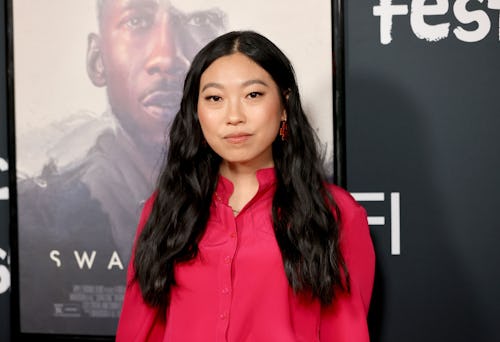Awkwafina’s non-apology did more harm than good
At some point, the actress will have to own up to how much she took from Black people.

This week, Awkwafina took it upon herself to piss everyone off again by giving a non-apology for her flagrant use of “blaccent” — a manner of speaking meant to stereotypically mimic African American dialect. What makes it worse is, she said everything we need to know about her by saying what amounts to a bunch of nothing.
From the depths of her phone’s Notes app, Awkwafina tweeted out four screenshots of her vague explanation of why she built a career off her blaccent. For five paragraphs, the Shang-Chi and the Legend of the Ten Rings actress delved into the “sociopolitical context” of her imitating Black dialect most of her career. She said that she sympathized with Black people being culturally colonized by American institutions, and pointed out how the ubiquity of hip-hop and Black culture helps blur the line between pop culture and offensive appropriation. After telling us what we all have known for a while now — that America loves to take from Black culture — Awkwafina finally spends a few sentences explaining how she never meant to mock, belittle, or be unkind to anyone with anything she’s ever done. And then she played the race card.
At the end of her Twitter statement, the Asian American entertainer proclaimed her failings in this matter are all part of her unique immigrant experience where Asian Americans are still trying to figure out “what is correct and where they don’t belong.” Showing people you at least have a level of understanding of race relations to write a decent freshman midterm paper is one thing, but to blame your immigrant background is a new low for someone who has skated around taking accountability for years.
Before she was Awkwafina the movie star, she was Nora Lum, a 24-year-old woman who found her voice in 2012 by combining her two loves: comedy and rapping. She went viral for her vagina glorification song “My V.A.G.,” where she celebrates her vagina as “a Beyoncé weave.” After gaining more traction with songs “NYC Bitche$” and “Giant Margaritas,” the LaGuardia High School graduate told her story to NBC News in August 2014. In the glowing profile, Awkwafina distances herself from any labels, uses her days of listening to Backstreet Boys to help describe her upbringing as “an American story,” and attributes her grandmother’s self-confidence and dark humor to her feeling comfortable being herself. Even though she describes her grandmother as “ratchet,” nowhere in the biggest profile of her career at the time did she mention how hip-hop and Black culture played a major part in her success and pop culture identity.
Her lack of public appreciation for Black culture became downright hypocritical when she infamously told Vice in 2017 she refused to take auditions where she has to do an Asian accent or “feel like I’m making a minstrel out of our people.” A year later, she was telling white men “don’t sleep” as the hustler Constance in Ocean’s 8, and telling Constance Wu she “can’t swerve” in Crazy Rich Asians with twang in her voice you’d expect from Madea. It would take three years, a Golden Globe award, and a prominent role in a Marvel film before she would address the controversy by vaguely saying she’s “open to the conversation” in a September 2021 Cinemablend interview surrounding Shang-Chi and the Legend of the Ten Rings.
Her latest non-apology takes as much accountability as her September comments. She once told NPR in 2018 that Awkwafina was a persona she created in order to have the confidence to perform her music. Awkwafina is not Nora Lum; it is a character created from Lum’s interpretation of what coolness and confidence are. She may not have known what her identity was when she was experimenting with accents and rapping in her teen and early adult years. But, she’s a public figure in her 30s still identifying with a character that wouldn’t exist without Black people, and she still isn’t owning up to that fact. And until she does, nothing she says on this subject will be enough.